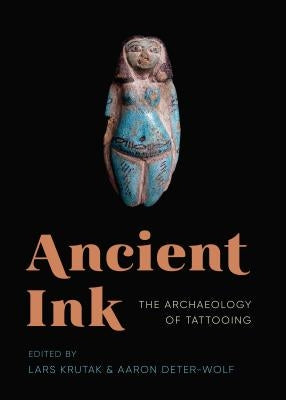- Description
Description
The human desire to adorn the body is universal and timeless. While specific forms of body decoration and the motivations for them vary by region, culture, and era, all human societies have engaged in practices designed to augment and enhance people's natural appearance. Tattooing, the process of inserting pigment into the skin to create permanent designs and patterns, is one of the most widespread forms of body art and was practiced by ancient cultures throughout the world, with tattoos appearing on human mummies by 3200 BCE.
Ancient Ink, the first book dedicated to the archaeological study of tattooing, presents new, globe-spanning research examining tattooed human remains, tattoo tools, and ancient art. Connecting ancient body art traditions to modern culture through Indigenous communities and the work of contemporary tattoo artists, the volume's contributors reveal the antiquity, durability, and significance of body decoration, illuminating how different societies have used their skin to construct their identities.
Author: Lars Krutak
Publisher: University of Washington Press
Published: 01/08/2018
Pages: 368
Binding Type: Hardcover
Weight: 2.07lbs
Size: 10.10h x 7.20w x 1.50d
ISBN13: 9780295742823
ISBN10: 0295742828
BISAC Categories:
- Art | Body Art & Tattooing
- Social Science | Anthropology | General
- Social Science | Archaeology
About the Author
Lars Krutak is a research associate at the Museum of International Folk Art. He is author of Tattoo Traditions of Native North America: Ancient and Contemporary Expressions of Identity and Spiritual Skin: Magical Tattoos and Scarification. Aaron Deter-Wolf is a prehistoric archaeologist for the Tennessee Division of Archaeology and senior editor of Drawing with Great Needles: Ancient Tattoo Traditions of North America. The contributors are Orlando V. Abinion, Gemma Angel, Ronald G. Beckett, Tara Nicole Clark, Colin Dale, Renée Friedman, Louise Furey, Svetlana Pankova, Dario Piombino-Mascali, Luc Renaut, Benoît Robitaille, Analyn Salvador-Amores, Dong Hoon Shin, Isaac Walters, Leonid T. Yablonsky, and Petar N. Zidarov.




